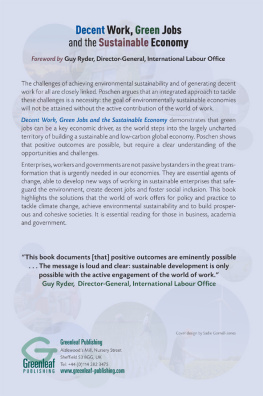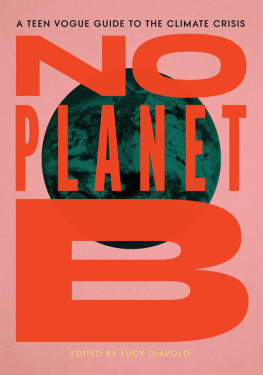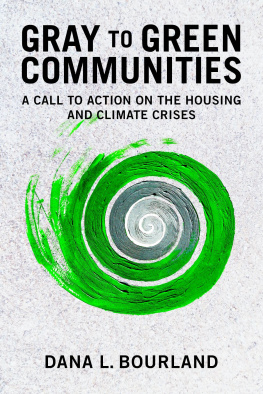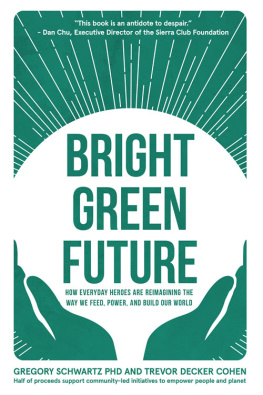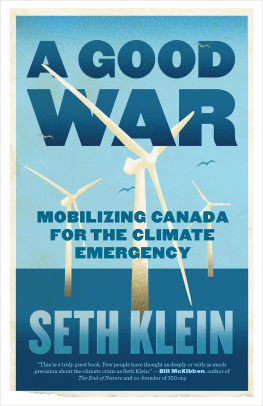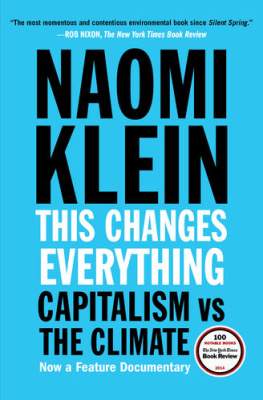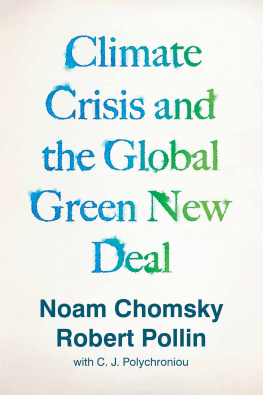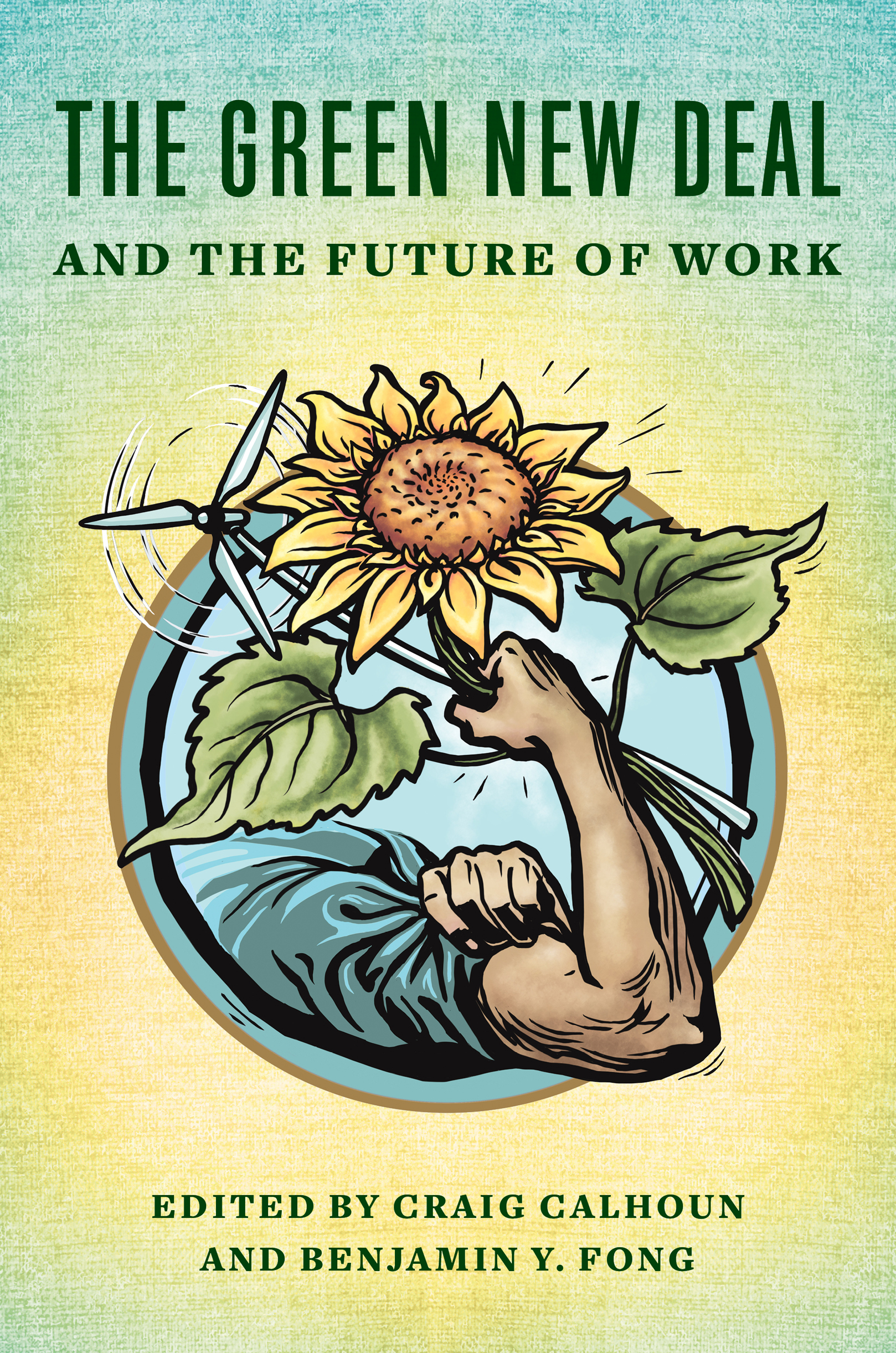Contents
Guide
List of Figures
Pagebreaks of the print version
THE GREEN NEW DEAL AND THE FUTURE OF WORK
THE GREEN NEW DEAL AND THE FUTURE OF WORK
EDITED BY CRAIG CALHOUN
AND BENJAMIN Y. FONG
Columbia University Press
New York

Columbia University Press
Publishers Since 1893
New York Chichester, West Sussex
cup.columbia.edu
Copyright 2022 Columbia University Press
All rights reserved
E-ISBN 978-0-231-55606-4
Library of Congress Cataloging-in-Publication Data
Names: Calhoun, Craig J., 1952 editor. | Fong, Benjamin Y., editor.
Title: The Green New Deal and the future of work / Edited by Craig Calhoun and Benjamin Y. Fong.
Description: New York : Columbia University Press, [2022] | Includes bibliographical references and index.
Identifiers: LCCN 2022003662 (print) | LCCN 2022003663 (ebook) | ISBN 9780231205566 (hardback) | ISBN 9780231205573 (trade paperback)
Subjects: LCSH: Green New Deal. | WorkForecasting. | Climatic changesEconomic aspects. | Labor market. | AgricultureEnvironmental aspects.
Classification: LCC JA75.8 .G7356 2022 (print) | LCC JA75.8 (ebook) | DDC 320.58--dc23/eng/20220218
LC record available at https://lccn.loc.gov/2022003662
LC ebook record available at https://lccn.loc.gov/2022003663
A Columbia University Press E-book.
CUP would be pleased to hear about your reading experience with this e-book at .
Cover design: Elliott S. Cairns
Cover illustration: Mona Caron
Contents
O ver the last fifty years, concern about damage to the environment has grown dramatically. Air pollution, toxic waste, and depleted water supplies have all captured public attention. But increasingly, the focus of alarm has been human-caused climate change. During the same period, American capitalism has undergone a wrenching, multifaceted transformation. Deindustrialization, neoliberalism, globalization, and automation are its key words. Unions have been battered. Inequality has skyrocketed. Whole towns have died. Sadly, those fighting for jobs and those fighting for the environment have typically been at odds. Each side has argued that its issue demands priority. Climate change is an existential risk. But the loss of good jobs with benefits is, for many, an even more immediate disaster: for good reason, workers often think of climate activism as a middle-class luxury.
The idea of a Green New Deal (GND) is born of this tensionand of the argument that the tension is unnecessary. Conflict between those emphasizing climate and those emphasizing jobs is damaging to both sides. It is not just that both are valuable and that there should be a compromise. For advocates of a GND, no compromise is needed. Stepping outside old and ideological arguments about the role of the federal government and the limits of public investment reveals ways to advance both climate and jobs agendas. Large-scale federal investment is key. Some stop there, but others suggest that deeper transformation is also needed and requires mobilization throughout society.
Climate change challenges the very future of human existence, and environmentalists are right to emphasize the dire situation we are in. But we will not meaningfully address this problem without also seriously addressing job loss and degradation. This is both a reality and a threat of damage to whole communities, jeopardizing both the fabric of society and the capacity to believe in a good future. Climate change and the crisis of work and livelihoods are both urgent. Both are potentially devastating. And yet, although both have attracted the attention of activists and policymakers, neither have received the response they demand. Too often, moreover, a focus on one has seemed to come at the expense of the other.
Calls for a GND are demands to overcome this impasse. They are demands, first, for action that takes seriously the scale of each threat, the human suffering it is already creating, and the likelihood of much worse. Second, and crucially, they are calls to meet both challenges at once. Indeed, the central appeal of the GND is not the boldness with which it addresses the existential threat of climate change but rather its crucial recognition that two crises of late capitalisma crisis of nature and a crisis of workmust be addressed together, in one and the same movement, or they will not be addressed at all.
MULTIPLE URGENCIES
The severity and urgency of the climate crisis are increasingly, but very unevenly, shaping public consciousness. There is no longer dissent among serious scientists to give an excuse to wider denial of climate change. But controversy over response to climate change, sadly, has been integrated into culture wars and populist politics, even without outright denial. Donald Trump made mocking wind power a staple of his campaign speeches, suggesting farcically that it would mean losing TV reception if the wind died down in the middle of a favorite show. Strong climate action has been portrayed as a central government attack on the freedom of citizens, with restrictions on pollution and fossil fuel consumption derided alongside wearing masks to protect against the coronavirus or proposals for gun control.
Its all too easy, however, for environmentalists to focus on the issue of climate denialism because then they have the ultimately more straightforward task of raising consciousness rather than strategically thinking through and overcoming the obstacles to an effective climate politics. Escalating climate disasters provide a steady drumbeat of evidence that the issue is undoubtedly realthat these are not just abstract predictions. As the New York Times put it, the evidence starts with drought in the West fueling historic wildfires that send smoke all the way to the East Coast and continues with parades of tropical storms lining up across the Atlantic to march destructively toward North America. But forcefully saying climate change is real is not by itself going to lead to climate action.
As cataclysmic as climate change is becoming, action in response must nonetheless contend with a range of other priorities. For those who have lost work, finding a job is basic. For those unable to support their families, income is more urgent than ecology. Even for those staying tenuously afloat, the fear of sinking pushes other issues into the background. Small business owners understandably worry about going bankrupt. The coronavirus pandemic raises immediate public health concerns. And there are many other issues too: debt, crime, police violence, paying for education.
Many movements suffer from a tendency to assume their issues are immediately and obviously the most important and most pressing. Committed activists commonly think those not working in close solidarity with them simply have not understood the importance of their cause. This has been a particular issue for climate activism. Since climate change poses such a basic, existential challenge to humanity, this is understandableindeed, motivational. But it is not helpful for either formulating strategy or building alliances.
Climate activists are passionate because they feel so deeply the basic ontological insecurity facing the human race. This has made it seem that any other view or focus for action is simply a mistake. But being unemployed or fearing material insecurity can be as profound an insecurity as facing climate change. Struggling to get by on low wages or in precarious employment is every bit as immediate a challenge as coping with environmental damage. Heat waves and environmental disasters generate alarm among environmental activists, but theyre just some of the problems that face working people.


